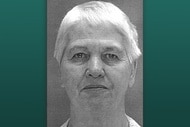Director Joe Berlinger Says We Need To Stop Looking The Other Way When Sex Workers Get Murdered
Director Joe Berlinger said he wanted to focus on serial killer Richard Cottingham for his latest docuseries because he wants to shine more of a spotlight on how neglected sex workers are when they're victims of crime.

Director Joe Berlinger is once again focusing his camera lens on a serial killer who preyed upon sex workers, and he says we as a society need to evolve in how we treat the profession.
With “Crime Scene: The Times Square Killer,” available Wednesday on Netflix, the veteran filmmaker explores the crimes and victims of New Jersey serial killer Richard Cottingham, who preyed upon sex workers in Times Square for 13 years. He was convicted in 1984 of six murders from 1967 to 1980 in New York and New Jersey. The victims were sex workers and some were so badly mutilated and dismembered that Cottingham earned the name "Torso Killer." Earlier this year, he admitted to killing two teens in New Jersey in 1974. In 2020, he admitted to murdering three teenage schoolgirls in New Jersey from 1968 to 1969, NJ.com reported.
But he has claimed he has killed upwards of 80 to 100 people. While Berlinger isn’t sure if that number is just the killer bragging, he told Oxygen.com he is certain that Cottingham has more victims than those he's been convicted of killing. He said police are actively looking into solving more of his possible murders.
How did he get away with killing it for so long? Well, as the new docuseries points out, it appears that after killing teens close to him, he began targeting sex workers in New York City’s Time Square during the height of the area’s gritty past. Berlinger told Oxygen.com that the neighborhood, now a tourist hotspot, was “a nexus of crime, particularly against women at the time.”
He said that law enforcement not only ignored assaults on sex workers at the time, but that they would actually arrest a sex worker if they came forward to make a report.
“For decades, the bodies of sex workers were found in dumpsters or back alleys and they [police] would say ‘no human involved’ and they wouldn’t investigate these cases,” he told Oxygen.com.
“'No humans involved' was an unofficial police phrase used in the '70s and '80s, most infamously in Los Angeles and New York, to describe the deaths of sex workers, transients, drug users, people of color and others they didn't feel were worthy of investigation. This literally dehumanizing internal code was brought to light in 1992 following the Rodney King beating. The acronym was used for some of the victims of serial killer Lonnie Franklin, aka the “Grim Sleeper,” in Los Angeles, Vanity Fair reported in 2014.
“The unofficial policy of 'no humans involved' is particularly disturbing but the official laws that existed as well did a terrible job of keeping sex workers out of trouble,” Berlinger told Oxygen.com. “They were criminalized and it was a lot easier to round up and criminalize the sex workers than to go hunt a serial killer.”
Berlinger said that like with his other recent docuseries "Confronting a Serial Killer" — which focuses on serial killer Samuel Little, who got away with his horrific murder spree for decades because he intentionally targeted sex workers — he wanted to point out the plight of sex workers with "The Times Square Killer."
“You don’t think of Richard Cottingham when you think about serial killers because he preyed upon sex workers,” he said. “[Ted] Bundy is well known because he preyed upon white collegiate young women so that made him a well-known figure because that was disturbing to society. They had multiple massive nationwide manhunts for Bundy and mobilization of police forces and when sex workers are preyed upon, unfortunately, they just look the other way.”
He said that while there has been progress over the past few decades, sex workers are still targeted by predators and police don’t put in the same resources for cases involving them.
"There is an astounding amount of victims who we don’t know who they are or who killed them and they are generally people in the sex work business," he said. "It’s shocking. There’s been an epidemic of sex workers being killed in the past three decades and of society looking the other way."
Berlinger advocates for both decriminalization and for attitudes to change.
“If a sex worker is found somewhere even today, it's not going to be treated as important,” he told Oxygen.com. “We need to evolve as a society.”
He added that “every human being deserves justice.”
“If you boil down what it means to be an American, you have their right to life, liberty, and the pursuit of happiness,” he said. “The police work for us, we pay for them and everybody who exists in our society should have equal protection.”


























